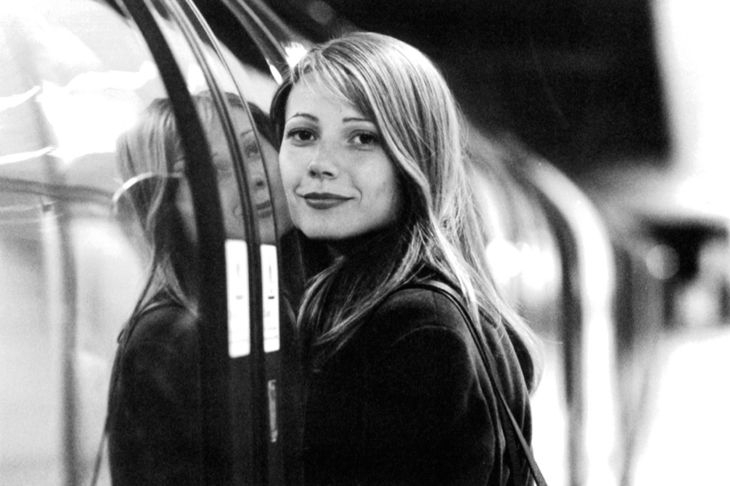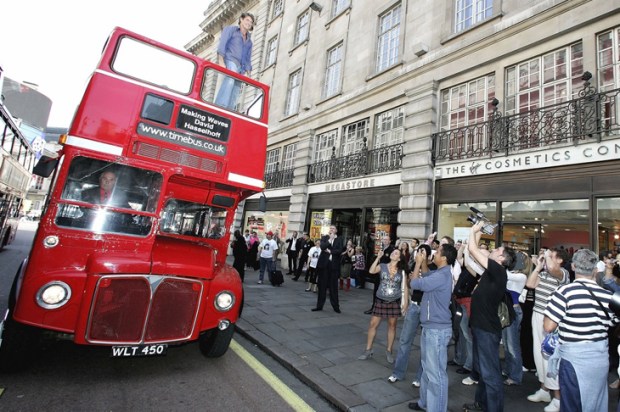A ‘sliding doors moment’ is one of those moments in life when a small, seemingly inconsequential decision (or event) goes on to change everything that follows. The Macquarie Dictionary (usually so good on current slang) has this wrong. They say the phrase comes from ‘the sideways movement of a sliding door’ – but that’s doubtful. Rather, it’s borrowed from the name of the 1998 movie Sliding Doors starring Gwyneth Paltrow and written and directed by Peter Howitt. The film alternates between two storylines, showing two paths the central character’s life could take depending on whether she catches a train.
It has been compared to a 1987 Polish movie Blind Chance, the outcome of which also hinges on whether the protagonist catches a train. And English playwright and novelist J.B. Priestley was always interested in the concept of how different strands of time might run, so he used this ‘sliding doors moment’ as a concept in his 1932 play Dangerous Corner. What I find interesting as a wordie is the way that these labels catch on. Those small but significant moments (or decisions) in life never came to be called ‘dangerous corner moments’ from Priestley’s play, or even ‘blind corner moments’ from the Polish movie. But, for some reason, the Gwyneth Paltrow movie caught the imagination of language users and gave these moments their name. I’ve never seen the movie, but it must have made quite an impact on those who did.
The story is that when the Gwyneth Paltrow character gets fired from her public relations job she rushes for her train on the London Underground but misses it as the train doors are closing; but the film then rewinds, and the scene is replayed, except that now she manages to board the train. The film continues, alternating between the two storylines in which different events ensue (but with occasional intersections of the two). So, the sliding doors of a ‘sliding doors moment’ are not big, glass office doors – but the doors on a train.
Got something to add? Join the discussion and comment below.
Get 10 issues for just $10
Subscribe to The Spectator Australia today for the next 10 magazine issues, plus full online access, for just $10.
Contact Kel at ozwords.com.au
You might disagree with half of it, but you’ll enjoy reading all of it. Try your first month for free, then just $2 a week for the remainder of your first year.














Comments
Don't miss out
Join the conversation with other Spectator Australia readers. Subscribe to leave a comment.
SUBSCRIBEAlready a subscriber? Log in